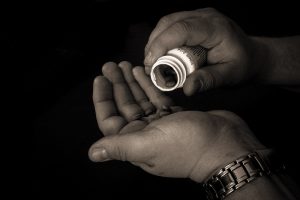Is It Our Job? Rethinking Addiction and Recovery Ministry in the Church
Guest
By Rev. John Cox
 True or False: Any spiritually and emotionally thriving missional congregation has intentionally or instinctually embedded addiction and recovery ministries into its DNA for pastoral care already.
True or False: Any spiritually and emotionally thriving missional congregation has intentionally or instinctually embedded addiction and recovery ministries into its DNA for pastoral care already.
The above statement is true. A local church does not have the option whether or not to “do” addiction/recovery ministry. Every local church already “does” addiction/recovery ministry—knowingly or not, poorly or well.
Is your church a “safe place” on a peer or pastoral level? How many people in your own personal or church family have experienced drug, alcohol or other behavioral “addictions” such as sex, food, gambling, porn, fantasy escapes in books/TV?
Important Facts for Churches:
- The Woodstock generation is now at retirement age. The 50,000 residents of The Villages, a retirement community in Florida, had the state’s highest transmission rate of STDs.
- High schoolers are abusing illicit drugs and prescriptions equally.
- Middle schoolers now smoke distilled THC oils in paste and brittle forms.
- The age range for Americans in addictive and abusing experiences is now from elementary school to post-retirement.
The point? Many pastoral care crises are related directly or indirectly to the strong, undetected forces of addictive and dysfunctional lifestyles.
Can your staff clearly identify and differentiate, by policy and wisdom, which acts of compassion, enabling, helping, discernment, accountability and church safety are useful when an unknown “poor” family of four asks for assistance? How would you discern wise, loving forward-moving ministry?
Common Myths About Addiction
Myth: All addiction is about drugs.
Myth: Addiction is all about sin.
Myth: Addiction is a disease, not sin.
Fact:The New Testament inseparably links the disease and moral dynamics of the addiction experience, individually and corporately.
Ephesians 5:18 says, “And do not get drunk with wine, for that is debauchery (excess, dissipation) but be filled with the Spirit…” This single Greek word translated debauchery (excess, dissipation) is “a-so-tia.” It is the negative form of “saoo” (to be healthy) and a related “sozo” (to save). Its common meaning in Paul’s day centered on two interwoven ideas: hopelessly incurable and morally spent/culpable. It was tagged in Latin as “luxuria” in the Middle Ages.The only other New Testament occurrences are 1 Peter 4:4 “reckless, wild living,” and Titus 1:6 which uses “asotia,” thus, “being wild and disobedient.”
In April 2011,The American Society of Addiction Medicine issued a Public Policy Statement: (A New) Definition of Addiction that highlighted both the introduction of brain science as well as acknowledging the spiritual component.
“Short Definition of Addiction:
Addiction is a primary, chronic disease of brain reward, motivation, memory and related circuitry. Dysfunction in these circuits leads to characteristic biological, psychological, social and spiritual manifestations. This is reflected in an individual pathologically pursuing reward and/or relief by substance use and other behaviors….. Like other chronic diseases, addiction often involves cycles of relapse and remission. Without treatment or engagement in recovery activities, addiction is progressive and can result in disability or premature death.”
As usual, science is great at collecting data, and pairs it with limited world-view biases. Even so, the amazing clarity of brain scans now gives us the ability to clearly detect brain health, illness and healing repair over time. Repeated exercises that include thankfulness, singing, spiritual and musical sharing, and returning to healthy, mutually supportive and submissive relationship all aid in the repair and increase of brain health and functioning.
Now hear this. The rest of Ephesians 5 says, “…be filled with the Spirit: speaking to one another in Psalms, hymns and spiritual song; singing and making melody in your hearts to the Lord; giving thanks always to God the Father for everything; submitting to one another out of reverence for Christ….”
Science is catching up to Scripture in this arena of concern for all!
Yes, It’s Our Job
Many people believe that most “addiction/recovery ministry” is about a “problem someone” involved with illegal substance use and abuse. But most “addiction/recovery ministry” involves someone other than the “problem someone.” Instead, this ministry is about the pain and consequences inflicted upon the parents, spouses, siblings, children, neighbors, workplace colleagues and fellow church members of “the problem someone.” You have many of these people in your church. How will you minister to them?
In my next several blogs, I will discuss how to engage and enrich your community’s expressed need for wellbeing with the holistic Gospel of radical compassion in recovery support ministries.
The Rev. John Cox is rector of St. Philip’s Anglican Orlando and also leads The Table, a healing and recovery support-style gathering for the community. He is a Certified Addictions Professional in the state of Florida and has led addiction and recovery support services in many different contexts.










